The Genesis Quest
The Geniuses and Eccentrics on a Journey to Uncover the Origin of Life on Earth
MICHAEL MARSHALL
The University of Chicago Press
The University of Chicago Press, Chicago 60637
2020 by Michael Christopher Marshall
All rights reserved. No part of this book may be used or reproduced in any manner whatsoever without written permission, except in the case of brief quotations in critical articles and reviews. For more information, contact the University of Chicago Press, 1427 E. 60th St., Chicago, IL 60637.
Published 2020
Printed in the United States of America
29 28 27 26 25 24 23 22 21 20 1 2 3 4 5
ISBN-13: 978-0-226-71523-0 (cloth)
ISBN-13: 978-0-226-71537-7 (e-book)
DOI: https://doi.org/10.7208/chicago/9780226715377.001.0001
First published in Great Britain by the Orion Publishing Group, London, 2020.
Library of Congress Cataloging-in-Publication Data
Names: Marshall, Michael (Science writer), author.
Title: The genesis quest : the geniuses and eccentrics on a journey to uncover the origin of life on earth / Michael Marshall.
Description: Chicago : The University of Chicago Press, 2020. | Includes bibliographical references and index.
Identifiers: LCCN 2020013379 | ISBN 9780226715230 (cloth) | ISBN 9780226715377 (ebook)
Subjects: LCSH: LifeOriginResearchHistory. | Scientists.
Classification: LCC QH325 .M2995 2020 | DDC 576.8/3DC23
LC record available at https://lccn.loc.gov/2020013379
 This paper meets the requirements of ANSI/NISO Z39.48-1992 (Permanence of Paper).
This paper meets the requirements of ANSI/NISO Z39.48-1992 (Permanence of Paper).
For Sarah and Libbet
CONTENTS
INTRODUCTION
How did life begin? Why are we here? These are among the most profound questions we can ask. They are about both ourselves and our relationship to the wider universe.
Yet while the question of how life started on our planet is an obvious one, scientists only really began engaging with it in the early twentieth century. Research into the origin of life is barely a century old. Even today, there are only a few dozen laboratories that directly tackle this important subject.
This book is the story of the scientists who have attempted to explain how and why life arose on our planet. It explores all the major ideas, explains how the scientists came to develop them, and delves into their strengths and weaknesses. It is crucial to tackle all the ideas because, despite what their proponents say, it is clear that most of them cannot be correct. It is only by trying them all on for size that we can start to see how life might really have begun. In recent years, origins researchers have started to devise a kind of grand unified theory that has a good chance of being correct in part because it includes the best elements from the older ideas. It is only by examining what has gone before that we can unlock the secrets of what might come next.
Our story begins in the 1920s, when after decades of minimal progress a scenario was proposed that gained widespread acceptance: that life began in the famous primordial soup. However, little progress was made for decades, until a seminal experiment performed by Stanley Miller in the early 1950s seemed to show that the chemicals of life could have formed naturally on the young Earth.
The Miller experiment kick-started a new field of science called prebiotic chemistry, which sought to make lifes building blocks from simple chemicals. However, the problem of lifes origin swiftly became immeasurably more complicated, thanks to the emerging knowledge of the complex workings of living cells. So intricate and interdependent is the machinery inside even the simplest bacterium, it is hard to imagine what a basic, primordial version would look like. Strip out even one of the key systems, and the organism dies.
As a result, from the 1960s on, several competing ideas arose, each championed by a faction of scientists for the remainder of the twentieth century. Each of these new ideas focused on one key component of living cells, which was supposed to arise on its own and then bring the others into being as necessary. For example, one popular idea known as the RNA World holds that a simple genetic molecule came into being and found a way to copy itself. Unfortunately, all these ideas ultimately fall down. None of lifes components, on their own, can achieve living status.
However, in the twenty-first century a few researchers have begun exploring ways to build living cells with all the key systems intact, but in hugely simplified form and using a bare handful of chemicals. This new approach, which was long viewed as virtually inconceivable, has had an astonishing run of success. The earlier ideas are still much discussed, but the new hypothesis has a better chance of being correct. It now seems that life began, not with a single component like a gene, but with several components that could work together. Life is less about a particular substance, and more about the way a group of substances behave when they are combined.
The quest to understand how life began is also the attempt to answer a profound question: is life inevitable? That is, was life always going to form given how the universe works, or is it a freak accident?
In his 1970 book Chance and Necessity, the French biochemist Jacques Monod staunchly argued that the universe is not shaped for life like us. He contended that the origin of life on Earth was stupendously unlikely. Life may only have formed once, here, in the entire history of the universe. The universe was not pregnant with life nor the biosphere with man, he asserted. Is it surprising that, like the person who has just made a million at the casino, we should feel strange and a little unreal? Monods attitudes were evidently shaped by existentialist philosophers like Jean-Paul Sartre and Albert Camus, who wrote of their nausea and alienation at a life lived without the moral compass offered by a god. He argued that we should all now feel alone in the unfeeling immensity of the universe.
Monods high-flown rhetoric has impressed a lot of people over the years, but aside from his portentous prose he offered precious little evidence. His main argument was that the evolution of new species is ultimately driven by random changes in genes. This meant that the sole driving force of evolution was pure chance, absolutely free but blind. However, Monod arguably went too far. It is true that genetic mutations are random, but which ones survive and become common in a population is not necessarily random at all. Instead, the mutations that survive are those that bestow benefits on the organisms that carry them, or at least allow the genes to become more common. That is why certain traits have evolved more than once, with different genetic underpinnings: for example, flight arose independently in insects, birds and bats. Monod was looking at the history of life through random-tinted glasses. It is a mistake to overemphasise the randomness of evolution and neglect its many regularities.
Lets now consider the opposite viewpoint. Origin-of-life researchers often say that life was somehow predestined. This can come across as semi-mystical, but there is at least some basis for thinking it is true.
The person who argued most fiercely that life was inevitable was the Belgian cell biologist Christian de Duve. Given how complex living organisms are, de Duve argued, they are stupendously unlikely to have arisen by chance. We are being dealt thirteen spades not once but thousands of times in succession, he wrote. This is utterly impossible, unless the deck is doctored. In other words, life must be easy to form under the right circumstances, or we would not be here. Over the course of the story, we will see that there are many natural processes that favour the formation of the chemicals of life, and of lifelike structures which supports de Duves contention.






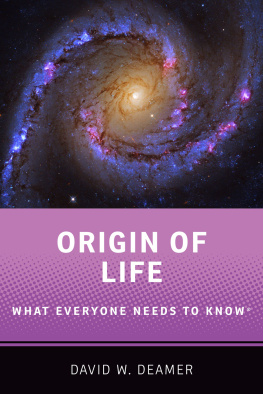
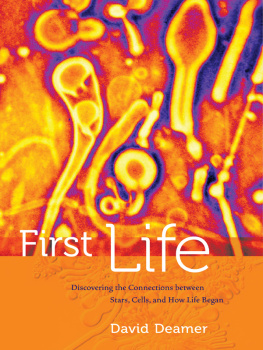
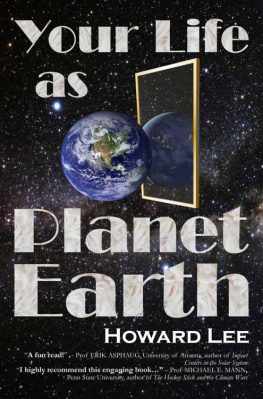
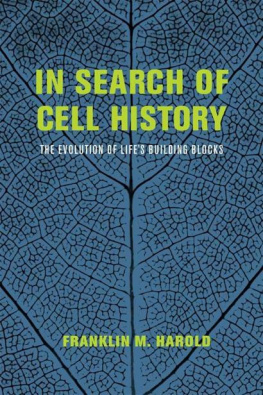
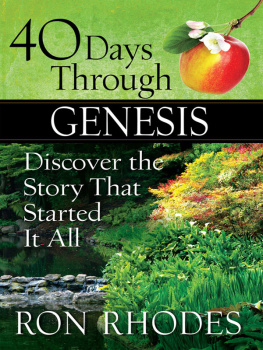

 This paper meets the requirements of ANSI/NISO Z39.48-1992 (Permanence of Paper).
This paper meets the requirements of ANSI/NISO Z39.48-1992 (Permanence of Paper).